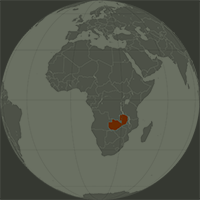The CiTA project has been revived since this year. CiTA stands for Computers in Technical Applications and focuses, as the name suggests, on applications of computers in all kinds of equipment. Examples include measuring temperature and humidity or controlling a traffic light or a motor in a robot arm.
CiTA update
The foundation gets a local representative
During the past years a SOZ representative paid regular visits to Zambia for giving courses and strengthening ties with institutions. This approach has its limits. And even though internet access – and hence communication through email or video-conferencing – is readily available these days in Zambia, regular personal contacts are a necessity.
Annual Report 2024
This report looks back at 2024, SOZ's fifteenth year.
Memorandum of understanding
A Memorandum of Understanding (MoU) was signed by UNZA and SOZ in July 2024. The MoU sets out the joint ambitions as well as the extent and form in which they lead to mutual effort obligations. The emphasis in the coming years will be on innovations in the curriculum. In this context, the courses 'Applied Artificial Intelligence' and 'IoT and Security' have previously been given. SOZ will not only contribute to the development and possibly (temporarily) lecturing of the theoretical subjects, but will also be actively involved in the design of the supporting labs. The duration of the MoU is 5 years.
Annual Report 2023
This report looks back at 2023, SOZ's fourteenth year.
Workshop Artificial Intelligence
During the visit that Chris Hendriks paid to Zambia in April 2024 on behalf of SOZ, he gave a workshop on the application of Artificial Intelligence. The emphasis was on applications that are not only important for Zambia but also require local expertise. AI can, for instance, be a valuable tool in agriculture; diseases in plants can be detected by AI supported systems.
Project GiVEN has started
Annual Report 2022
This report looks back at 2022, SOZ's thirteenth year.
The curriculum
As part of the CiTA project, SOZ tries to contribute to the innovation of the curriculum at various levels of education. Currently, the focus is on the university level. Developments such as the introduction of Artificial Intelligence and, in conjunction with that, the introduction of intelligent devices, are going to have their impact on Zambian industry like everywhere else. And although Zambian industry is unlikely to play a significant role in the development and production of such equipment any time soon, choices regarding procurement will have to be made in the future by the students currently attending higher education.
Post Corona update
After two corona years, it was possible to visit Zambia again. Incidentally, the effect of the corona epidemic in rural Zambia turned out to be not too bad. As far as you can judge as an outsider, of course.
Annual Report 2021
This report looks back at 2021, SOZ's twelfth year.
Annual Report 2020
This report looks back at 2020, SOZ's eleventh year.
Microcomputers in Technical Applications - part 3
Handout - Microcomputers in Technical Applications, part 3 Internet Of Things
Microcomputers in Technical Applications - part 2
Handout - Microcomputers in Technical Applications, part 2 Image Processing and Artificial Intelligence
Microcomputers in Technical Applications - part 1
Handout - Microcomputers in Technical Applications, part 1: Sensors and actuators
Annual Report 2019
This report looks back at 2019, SOZ's tenth year.
Integration of computers in equipment and industrial processes
This year and next year the focus within the CiTA project will be the introduction and further implementation in the curriculum of the integration of computers in equipment and industrial processes. The curriculum innovation will take place within three universities: the University of Nairobi (department of Electronic Engineering), the University of Zambia (department of Electronic Engineering and departments in application areas) and the Kapassa Makassa University in the north of Zambia (department of Science and ICT in Education).
Artificial intelligence in engineering
Exploration of AI within the curriculum
Integration of computers in equipment and industrial processes
This year and next year the focus within the CiTA project will be the introduction and further implementation in the curriculum of the integration of computers in equipment and industrial processes. The curriculum innovation will take place within three universities: the University of Nairobi (department of Electronic Engineering), the University of Zambia (department of Electronic Engineering and departments in application areas) and the Kapassa Makassa University in the north of Zambia (department of Science and ICT in Education).
Water project
The shortage of water became more and more of a problem. Due to the growing population with, in relation to that, the growth of the primary and secondary school and the clinic, the existing water supply had become insufficient. Therefore, a project has been carried out in which the people themselves have built a new water system.

